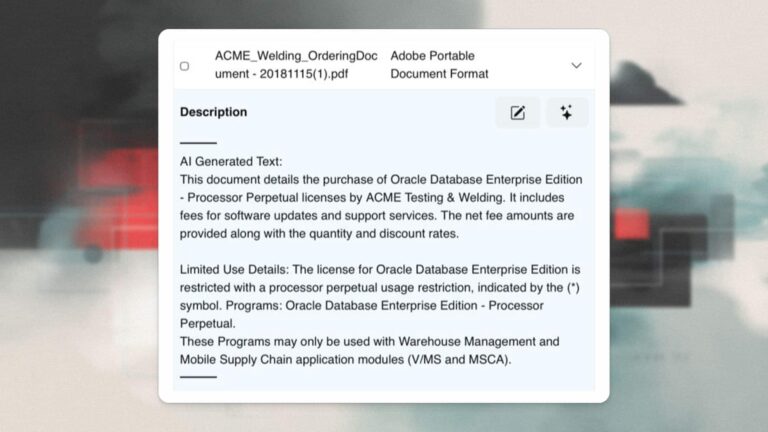Dave Welch (@OraVBCA), CTO & Chief Evangelist
Here are eight arguments for the probability that the Mars v. Oracle kerfuffle turned out entirely in Mars’ favor.
- Oracle advanced its assertions, which lacked contractual merit, privately one prospect and customer at a time rather than with public statements.
- The matter was dismissed rapidly, which is all the more remarkable given the interruption of the Thanksgiving holidays.
- Mars’ arguments were, and are, consistent with the governing agreement’s plain and simple language.
- Oracle has filed no subsequent legal challenges to enforce its “prospective” licensing assertion for competing hypervisors. If anything about whatever Mars and Oracle agreed to out of court had been in Oracle’s favor, surely we would have seen subsequent legal action by Oracle to publicly establish those wins for its intellectual property rights. Oracle’s silence becomes more telling with the passing of time.
- House of Brick has a perfect track record of asserting the governing agreement’s Processor definition across hundreds of Oracle license assessments and Oracle audit defenses for our clients.
- Oracle’s transformation of a licensee’s capability into a licensing event would create a licensing obligation for that licensee for just about every VMware customer on the globe. This is due to the fact that it is possible for two network administrators of previously unaffiliated organizations to hop on a call, exchange configuration information, and within minutes establish a secure connection between their systems.
- After the contract is signed, Oracle assumes incremental licensing obligations for hypervisor use. If that were valid, wouldn’t Oracle also be privileged to approve each and every use case, business flow, and industry in which its software runs? They are equally ludicrous propositions.
- Oracle’s assertion of its prospective licensing policy for competing hypervisors may not have been a unique material misrepresentation on Oracle’s part. The Amended Consolidated Class Action Complaint filed 17 February 2020 alleges that Oracle is an organization willing to systematically misrepresent their licensing agreements in a manner conceived, trained, and coordinated at the highest levels.






